Treatment
Treatment Options in Calgary and Surrounding Areas
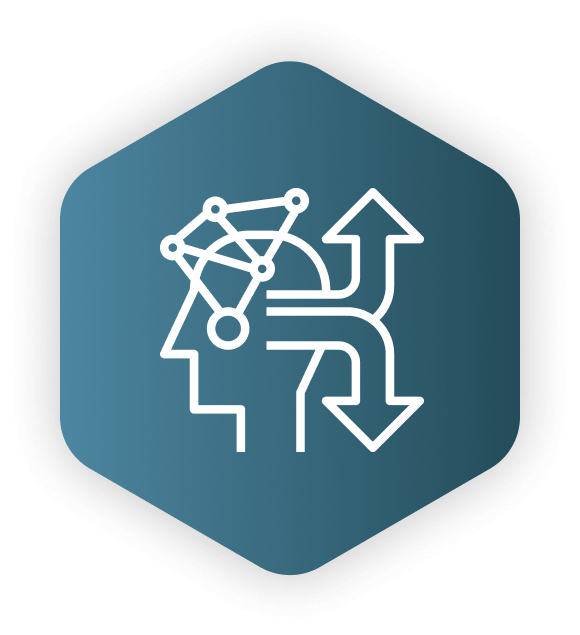
Effective
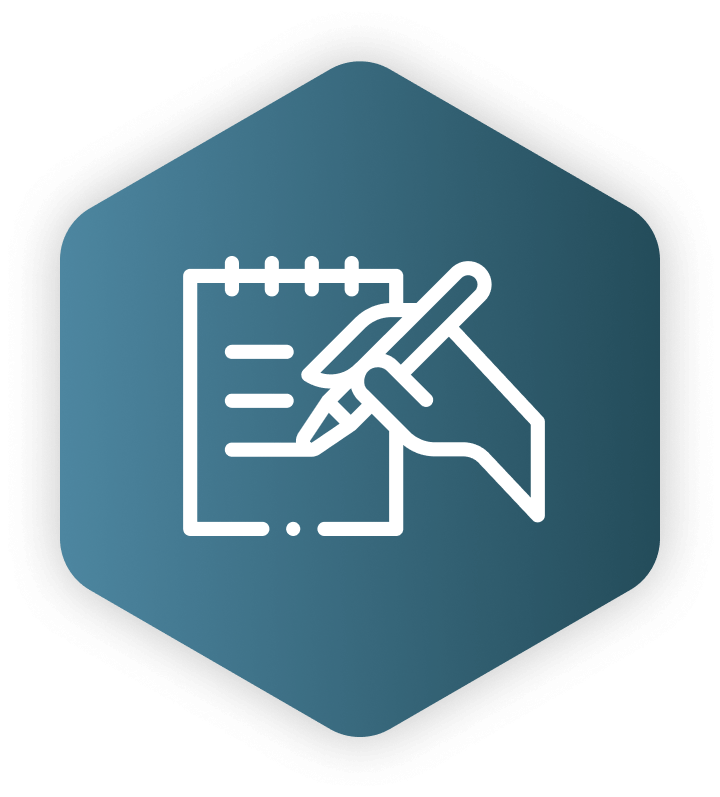
Proven
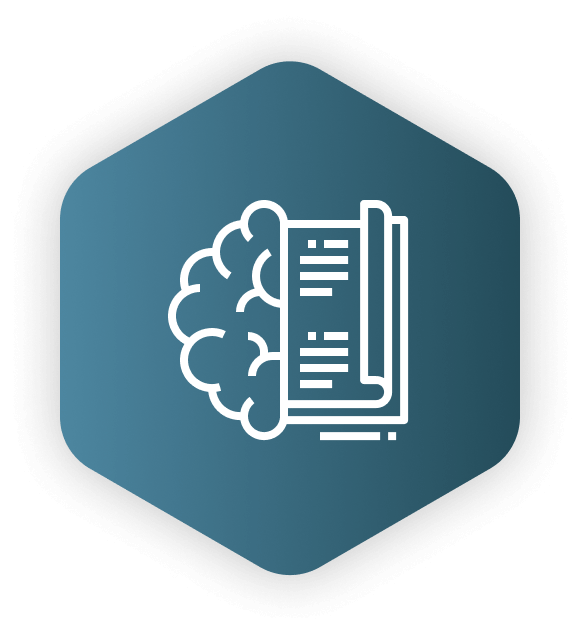
Evidence-Based
Healing Starts With Finding Balance
As human beings, we are all susceptible to anxiety, poor sleep, physical and emotional pain, and injury. If you feel that your “normal” self has fallen off-kilter, seeking support can help in your recovery and healing journey. This involves finding Balance between your mind and body, activity and rest, and the care of yourself and others. Through compassionate self-discovery and evidence-based treatment, you can work towards overcoming the challenges in your life and promoting a healthier you.
“If you fall on your face you’re still moving forward.”
— Victor Kiam
Healing Starts With Finding Balance
As human beings, we are all susceptible to anxiety, poor sleep, physical and emotional pain, and injury. If you feel that your “normal” self has fallen off-kilter, seeking support can help in your recovery and healing journey. This involves finding Balance between your mind and body, activity and rest, and the care of yourself and others. Through compassionate self-discovery and evidence-based treatment, you can work towards overcoming the challenges in your life and promoting a healthier you.
“If you fall on your face you’re still moving forward.”
— Victor Kiam
Our Treatment Services
One in five Canadians will experience a mental health problem at some point in their life. Experiencing an illness, injury, or life altering circumstance can challenge and even overwhelm our coping ability. This can result in increasing anxiety, difficulty managing emotions, and carrying out everyday activities.
Who Needs It?
- If you are experiencing a mental health challenge that is disruptive to your life or feels overwhelming, seeking the support of a mental health professional can help you work through and cope with these struggles.

Cognitive Behavioural Therapy for Insomnia (CBT-I) in Calgary is a structured treatment for chronic sleep problems. It is typically recommended as the first line treatment for insomnia and can be implemented without, or alongside, medications.
Who Needs It?
- If you have difficulty falling asleep, staying asleep, or waking up too early in the morning, and these problems persist over a few months at least three times a week, you might benefit from CBT-I.

The persistence of physical pain long after the expected recovery time often contributes to the development of unhelpful thought patterns and behaviours. Our treatment is designed to address the psychological, physical, and social aspects of pain complexity and help improve psychological well-being, functional ability, and quality of life.
Who Needs It?
- If you struggle to manage persistent physical pain, adopting positive ways of coping can promote your psychological well-being and, in turn, alter your pain experience and increase functional abilities.

A concussion is a temporary disruption in normal brain functioning due to a physical head injury or biomechanical force involving the head. The majority of healthy adults experience recovery in symptoms within three months of injury.
Who Needs It?
- If you have experienced a concussion or have persisting symptoms afterwards (lasting longer than three months), education and psychotherapy may help improve psychological well-being and increase tolerance for physically, cognitively, and emotionally-demanding activities.

Cognitive rehabilitation is designed to enhance functioning and independence in those with cognitive difficulties. The form of neuropsychology treatment and rehabilitation that is provided depends on the type and severity of the cognitive problem.
Who Needs It?
- Rehabilitation is typically provided for individuals who have suffered a brain injury. Most commonly, but not limited to, this results from a moderate to severe traumatic brain injury, stroke, or neurological condition that is impairing memory ability or executive functioning.

Mild Cognitive Impairment (MCI) is a condition where a person experiences a slight decline in mental abilities (e.g. memory) compared with others of the same age that is significant enough to interfere with daily life and normal activities. Learning the Ropes for MCI is a six-week intervention program aimed at older adults in the community who are experiencing mild memory decline.
Who Needs It?
- This program is designed for people who have been diagnosed with amnestic MCI, which impacts memory abilities. The focus is on learning strategies to help improve memory functioning in everyday life through behavioural therapy and other methods.

When a person struggles with an illness or injury that is not related to work, but makes it disabling to work, their insurance company may support treatments that will assist in their rehabilitation. Returning to work may involve a gradual return to work plan and recommendations for workplace adjustments or accommodations.
Who Needs It?
- If you have been disabled from working due to an illness or injury (psychological or physical), you may be eligible to participate in a disability management program and receive rehabilitation services and assistance to support your successful return to work.

The Workers’ Compensation Board (WCB) provides disability insurance for workers and employers in the province of Alberta, including wage-replacement benefits and medical aid. Treatment focuses on recovery in relation to returning to work and involves addressing concerns related to a person’s inability to perform their duties.
Who Needs It?
- If you have been injured at work, either physically or psychologically, you have the duty to report your injury/illness to your employer, and you may be eligible for treatment services to help address these concerns and support your successful return to work.

Care Wherever You Are
Our team can provide virtual care services (online or over the phone) to people across Alberta who have concerns about their physical, emotional, or cognitive health.
“Ultimately there is one thing that creates tension: wanting things to be different than they are.”
— Atul Singh
Treating Your Concerns to Promote Healthy Aging
Our clinicians are here to provide treatments that are rooted in science and align with your unique situation and concerns. Whether you are having difficulty managing anxiety or depression, experiencing sleep problems or cognitive concerns, or suffering from an illness or injury that makes it difficult to manage pain, overcome a disability or return to work, we are here to help. Our primary methods of treatment include psychoeducation, cognitive behavioural therapy, acceptance and commitment therapy, mindfulness-based stress reduction, and solution-focused brief therapy. Let us help you promote your brain health, physical vitality, and emotional strength by achieving wellness in your life’s journey.
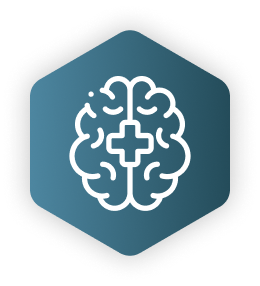
Evidence-Based
Treatments
Providing services that are rooted in credible scientific evidence helps to ensure quality of care, in that services are appropriate and effective in addressing the needs of each client.

Tailored Treatment
Programs
By respecting individual values and priorities, services are tailored to address the personal needs and goals of each client, which improves the quality of care and positive outcomes.
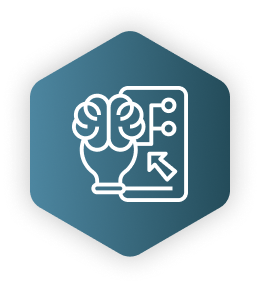
Improve Functional
Abilities
Building resilience and effective coping skills can promote emotional, physical, and mental tolerance for increasing activity levels, personal goals, and functional abilities.
Pillars of Our Practice
Assessment
Assessments are tailored to identify behavioural, emotional, and cognitive concerns related to your brain health, as well as provide diagnostic clarification, describe changes over time, and guide treatment recommendations.
Prevention
The prevention of illness begins with evidence-informed education and skill-building to help you optimize factors that support healthy aging (e.g. mental health, sleep, exercise, diet, stress management, etc.).
Treatment
Individualized treatment is designed to address your unique needs and goals, the challenges or barriers that may be interfering with your best self, and your ability to live in accordance with your values.

Treatment at Balance:
Psychology and Brain Health
If you are struggling with anxiety, depression, sleep concerns, pain, cognitive abilities, or difficulty overcoming disability and returning to work, we encourage you to connect with us to discuss how we can help. Individualized treatment (e.g. neuropsychological treatment, cognitive behavioural therapy, mindfulness-based stress reduction, disability claims management) is designed to address your unique needs and goals, and the barriers that may be interfering with your best self. We can also work collaboratively with other members of your healthcare team and make recommendations for further physical, emotional or cognitive assessment, as needed. If we are not able to provide the type of intervention or treatment that is right for you, we will make suggestions for other providers who may be able to help.
“May I find the serenity to accept the things I cannot change; courage to change the things I can, and wisdom to know the difference."
— Various
Treatment at Balance:
Psychology and Brain Health
If you are struggling with anxiety, depression, sleep concerns, pain, cognitive abilities, or difficulty overcoming disability and returning to work, we encourage you to connect with us to discuss how we can help. Individualized treatment (e.g. neuropsychological treatment, cognitive behavioural therapy, return to work support, rehabilitation) is designed to address your unique needs and goals, and the barriers that may be interfering with your best self. We can also work collaboratively with other members of your healthcare team and make recommendations for further physical, emotional or cognitive assessment, as needed. If we are not able to provide the type of intervention or treatment that is right for you, we will make suggestions for other providers who may be able to help.
“May I find the serenity to accept the things I cannot change; courage to change the things I can, and wisdom to know the difference."
— Various

